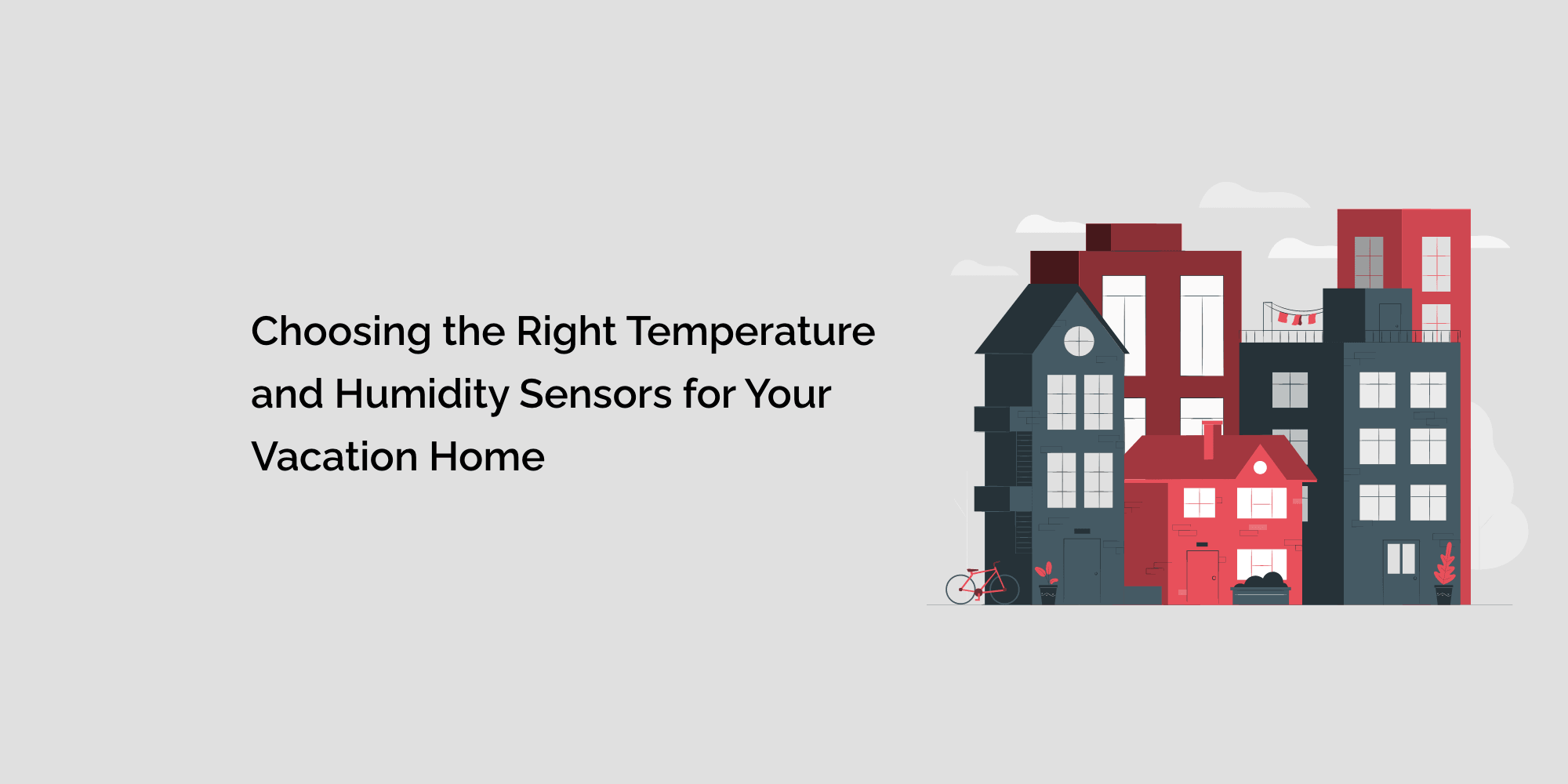Owning a vacation home is a delightful escape, offering tranquility and relaxation away from the hustle and bustle of daily life. Ensuring the well-being of your vacation property, even when you're not there, requires vigilance, especially when it comes to temperature and humidity levels. The right temperature and humidity sensors can provide you with peace of mind, offering real-time data and alerts to protect your property from potential damage. In this blog, we'll guide you through the process of selecting the ideal temperature and humidity sensors for your vacation home, empowering you to create a comfortable and secure environment, regardless of your physical presence.
Understanding the Need for Temperature and Humidity Sensors:
Temperature and humidity sensors play a crucial role in maintaining your vacation home's health and integrity:
a. Property Preservation: Monitoring ensures that the property's materials and structures remain in optimal condition, preventing damage.
b. Energy Efficiency: Properly managed climate control leads to reduced energy consumption and lower utility bills.
c. Guest Comfort: Providing a comfortable environment for guests enhances their experience and encourages return visits.
d. Preventive Measures: Early detection of temperature and humidity issues prevents potential damage and saves you from costly repairs.
Types of Temperature and Humidity Sensors:
There are several types of sensors available, each with its own features and capabilities:
-
Wired Sensors: Wired sensors are physically connected to the monitoring system and provide accurate data but require installation.
-
Wireless Sensors: Wireless sensors offer more flexibility and convenience, as they can be placed in various locations without wiring.
-
Smart Sensors: Smart sensors are connected to your home network and often offer remote monitoring and alerts through a smartphone app.
- Standalone Sensors: Standalone sensors provide basic data readings without connectivity features, suitable for simple monitoring needs.
Factors to Consider When Choosing Sensors:
Several factors should guide your choice of temperature and humidity sensors:
-
Location: Consider where you need sensors. Basements, attics, and key rooms are common areas for monitoring.
-
Connectivity: Decide if you want wireless or smart sensors for remote monitoring and adjustments.
-
Accuracy: High accuracy sensors provide more reliable data for effective climate control.
-
Battery Life: Battery-powered sensors need to be replaced less frequently, ensuring continuous monitoring.
-
Range: Ensure that the sensors have an appropriate range to communicate with the monitoring system or your smartphone.
- Compatibility: Choose sensors that are compatible with your existing home automation or monitoring systems.
Benefits of Smart Temperature and Humidity Sensors:
Smart sensors offer advanced features that enhance your vacation home management:
-
Remote Monitoring: Access real-time data and receive alerts about temperature and humidity deviations remotely.
-
App Integration: Many smart sensors integrate with smartphone apps, allowing easy monitoring and adjustments on the go.
-
Custom Alerts: Set up customized alerts for specific temperature or humidity thresholds to ensure timely action.
- Data Insights: Some sensors offer historical data, allowing you to analyze climate patterns and make informed decisions.
Popular Brands and Models:
Several reputable brands offer reliable temperature and humidity sensors for vacation homes:
-
Ecobee SmartSensor: These sensors integrate with Ecobee smart thermostats and offer accurate data and remote monitoring.
-
Airthings Wave Plus: Airthings offers smart sensors that not only monitor temperature and humidity but also provide air quality data.
-
SensorPush Wireless Thermometer: These wireless sensors are easy to set up and offer a long-range connection to your smartphone.
- AcuRite 01083M: This wireless sensor provides real-time data and alerts for both temperature and humidity.
Conclusion:
Choosing the right temperature and humidity sensors for your vacation home is an essential step in safeguarding your property and ensuring its longevity. By considering factors such as location, connectivity, and features, you can make an informed decision that aligns with your monitoring needs. Whether you opt for wireless or smart sensors, the peace of mind and convenience they offer are invaluable. With the right sensors in place, you can remotely monitor and adjust temperature and humidity settings, ensuring that your vacation home remains a haven of comfort and well-being, even when you're miles away.








